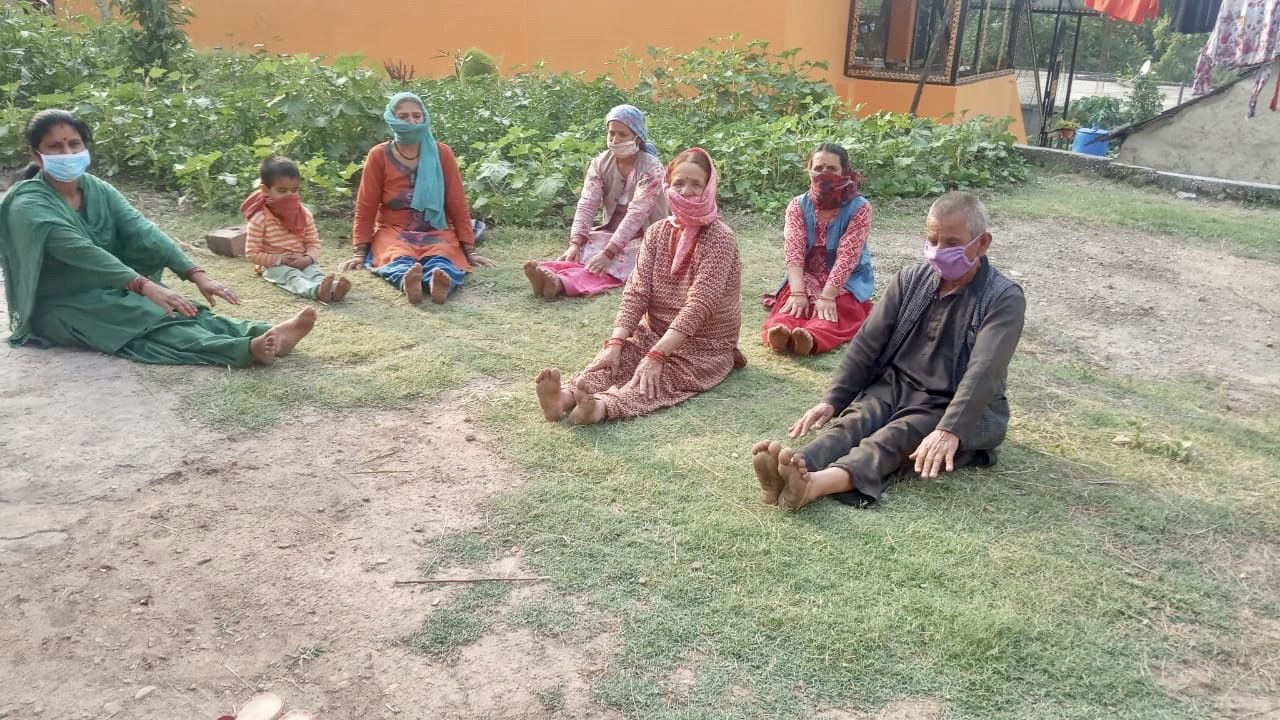Partnership between the Medtronic Foundation, CHAI, MAMTA & The Constellation
Non-Communicable Diseases (NCDs) are contributing to over 63% of all deaths worldwide. This partnership process considers the importance of raising NCDs awareness and management at community level. After a first phase of interventions using the SALT-CLCP methodology, Abt. Associates/Medtronic Foundation in India and The Constellation provided strategic direction and technical guidance to implement additional interventions through partners on the ground: Catholic Health Association of India (CHAI) in Udaipur and Health Institute for Mother and Child (MAMTA) in Shimla. The methodology was implemented in 14 villages in Shimla and 5 villages in Udaipur respectively to improve participation of patients/caregivers in Patient Support Group (PSG) meetings.
The project objectives are:
To demonstrate improved clinical outcomes of patients with diabetes mellitus and hypertention, exposed to SALT-CLCP approach in the selected geography.
To demonstrate the effectiveness of the SALT-CLCP methodology in strengthening Front Line Health Workers (FLHWs) for enhanced community engagement in NCDs management.
To demonstrate effectiveness of SALT-CLCP methodology in empowering patients i.e. showcasing improved self-care practices and improved treatment adherence.
In addition to the regular monitoring developed by the MAMTA and CHAI teams through their Monitoring Information System (MIS), a mixed methodology comprising of independent qualitative and quantitative methods is being used by the Ramaiah International Centre for Public Health Innovations (RICPHI) to evaluate the same through performance indicators. The system is expected to facilitate the process by generating data via multiple templates/forms that will be used to capture planned activities. It is intended to generate quarterly progress assessment reports to guide and support the smooth implementation of the project.
The key target population are enrolled patients suffering from diabetes, hypertension or both in the age group of 15-70 years who will be exposed to SALT-CLCP methodology with the support of FLHWs in the intervention villages. A total of 818 patients are enrolled in the study across the two districts.
94 villages were distributed into 4 categories of interventions/exposure to the SALT-CLCP interventions (including 2 counterfactual arms).
Frontline Health Workers and Out-Reach Workers are trained in successive phases for implementation and accompaniment of the patients, the Patient Supports Groups and the surrounding communities in the intervention zones. Baseline study and patient follow-up as well as end-line study were carried out by the evaluation partner (RICPHI).
In order to enhance learning and knowledge exchange, the consortium partners and representatives from the affected groups were invited to participate at a Knowledge Fair in Guwahati (Assam province) in February 2020.
Results
The main results of these one-year interventions should have been collected during an end-line study scheduled for April 2020 by the evaluation team (RICPHI). Since mid-March 2020, the pandemic spread and lockdown restrictions stopped the Out-Reach Workers and FLHWs as well as the evaluation team to reach the patients. The field teams had to halt the learning cycle with Patient Support Groups because group meetings were discouraged. We hope that a late end-line study could be carried out as soon as the restrictions are lifted.
Otherwise, the evaluation team will have to use the data from the incomplete information of the second follow-up of patients carried out in February 2020 (see quarterly reports here).
In view of the prevalent situation in India, the Medtronic Foundation has kindly agreed to extend the deadline of the project till June 2020 at no cost to the partners. All teams are doing their best to complete the interventions and carry out the endline study.
- Pictures credit : Virender Thakur (MAMTA, 21st of June 2020)
- Place : Shimla, India
- Programme : Evaluation of the impact and sustainability of SALT-CLCP through a case-control study for Non-Communicable Diseases (Diabetes &Hypertension) in Shimla & Udaïpur between June 2019 and May 2020.
- Estimate number of communities who applied SALT-CLCP in 2019: 38 villages
- Stakeholders involved: 297
- Number of patients: 314
- Number of PSGs formed: 36
- Number of frontline health workers trained on the approach: 50

